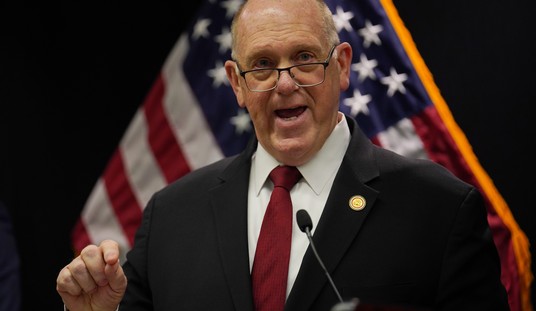I’ve flagged this issue before — Time magazine was on it before the end of October, in fact — but Megan McArdle’s right that it’s worth revisiting now, with Sebelius hinting that people shouldn’t expect too much from the website on November 30. The emerging Plan B in case Healthcare.gov is still FUBAR next month is to tell users to skip the site and sign up for the plan they want on the insurance company’s own website instead. (Said one industry official recently to the NYT, “If they don’t have Healthcare.gov up and running by the end of the month, direct enrollment is critical.”) There are technical snags with that approach, namely the fact that insurers have no way to calculate an applicant’s taxpayer subsidy (then again, neither do the feds), but at least it gives people a way to get covered before December 15 so that they have a plan in place on New Year’s Day. Cold comfort for the millions who’ve had their plans dropped, but some coverage is usually better than none.
Just one problem. The law says that, in order to be eligible for subsidies, you have to enroll through an ObamaCare exchange. Buying your plan directly from an insurance company disqualifies you, no matter how low your income is. Time wrote about that specifically in the context of people who’ve had their plans canceled and then been automatically enrolled by their insurer in a new plan. Because that enrollment didn’t happen via an exchange, the insured gets no help from Uncle Sam with their new premiums. Experts on the law told Time that it’s unambiguous:
The ACA subsidies are technically tax credits, but consumers can’t apply for them later when they file their income tax returns. The subsidies are only available when consumers purchase coverage through the exchanges, according to CMS. “As far as retroactive premium tax credits for a plan outside the exchange, you can’t do that under the statute,” says Timothy S. Jost, a professor at Washington and Lee University and an expert on provisions of the new law.
As of yesterday, Sebelius herself was warning people that it’s perfectly fine to sign up with insurers directly — unless you need a subsidy:
Sebelius urged those who know they will not qualify for a subsidy on their insurance premium to research available plans and contact their chosen insurance company directly, an option she said is working well.
Subsidies generally are available for individuals earning less than $46,000 a year and families of four earning less than $92,000.
Big problems here for the White House. If they go full bore in promoting direct enrollment with insurers as an alternative to Healthcare.gov, there are bound to be tons of lower-income people who somehow miss the fine print about not going that route if you need a subsidy. That means lots of rate shock and disgruntlement over their new unsubsidized premiums. An obvious alternative is to have insurers themselves ask people what their income is and to discourage them if they’re below the $46,000/$92,000 threshold, but then that means the poor, who are supposed to be the law’s big winners, end up being shut out of coverage for awhile even as middle-class and upper-middle-class people sign up. This is why, I assume, the White House hasn’t promoted direct enrollment enthusiastically with a full-fledged PR campaign despite some congressional Democrats begging them to be more aggressive. They’re probably better off having people not sign up for coverage than to nudge everyone towards direct enrollment and then have thousands of poor applicants shocked by the unaffordable rates being quoted to them.
Or, of course, there’s a third option: Obama could simply decide to ignore the statute and pay out subsidies anyway to people who directly enroll. Normally you don’t have to game out “what if the president just does something illegal instead?” scenarios, but after the employer mandate was dubiously delayed and Obama foisted his highly questionable “fix” for plan cancellations on the insurance industry last week, the illegal option can’t be ruled out. Maybe he’ll conclude that, in the interest of getting as many people on the rolls as possible before December 15th, his best option is to tell the country to go ahead and enroll directly with insurance companies and then demagogue the hell out of the GOP later if they refuse to pass something granting subsidies to those direct enrollees retroactively. Decisions, decisions.
Oh, by the way — because of the way the section about subsidies in the ObamaCare statute was written, it may be that people are also ineligible for subsidies if they bought their plan … via Healthcare.gov. It’s the state exchanges, the statute seems to say, that can bestow taxpayer subsidies on people whose income is below the cut-off. There’s nothing in there about a federal exchange. That issue is currently tied up in court; if Healthcare.gov enrollees also end up disqualified for subsidies, all hell’s going to break loose.








Join the conversation as a VIP Member